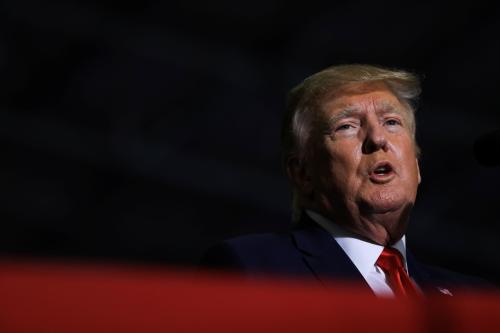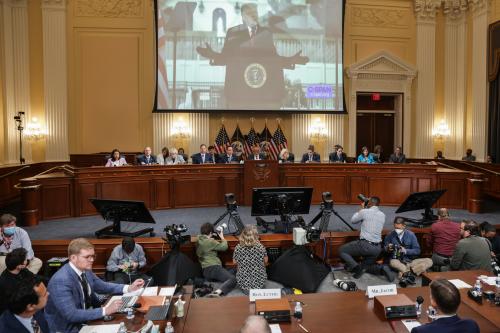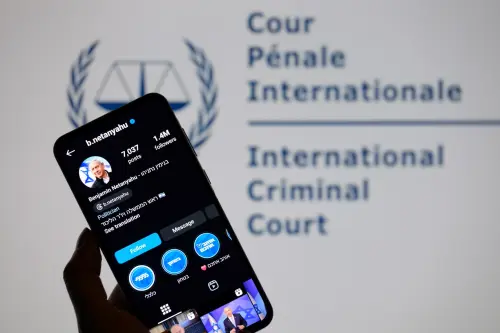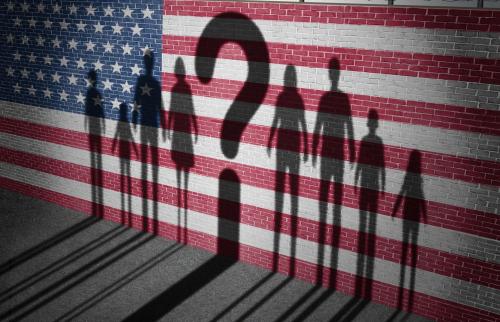For full documentation and citations, see “President Trump and the Shallow State: Disloyalty at the Highest Levels, Presidential Studies Quarterly”
President Trump often complained about the “deep state” of career civil servants who, he asserted, were determined to undermine his presidency. He promised to “drain the swamp,” and his aide Steve Bannon predicted “the deconstruction of the administrative state.”
But it was his own presidential appointees who most visibly resisted his directives. Political appointees are expected to be the most loyal advocates of a president’s policy agenda, riding herd on the many bureaucracies of the executive branch. Yet Trump’s appointees in the White House, cabinet, military, and intelligence community refused to carry out many of the president’s directives to an extent unprecedented in the modern presidency. President Trump’s appointees went well beyond the normal disagreements about policy that are typical in every administration; they resorted to slow walking orders, refusing to comply with directives, and even outright sabotage. Leadership is central to the presidency. The resistance to President Trump by his highest level officials illustrates how his own appointees judged his leadership.
Senior members of the White House staff often tried to thwart Trump’s instincts. For example, Staff Secretary Rob Porter considered Trump’s desire to withdraw from the Paris Climate Accord unwise. So, Porter took a draft statement off Trump’s desk. Similarly, National Economic Council Director Gary Cohn and Porter decided to “slow-walk” an order to withdraw from the NAFTA free trade agreement. Cohn told Porter: “I can stop this. I’ll just take the paper off his desk before I leave. If he’s going to sign it, he’s going to need another piece of paper.” Later, after multiple reviews, Trump got his way on the Paris Accord and NAFTA.
In August 2017, Trump wanted to fulfill a campaign promise to withdraw from the U.S. free trade agreement with South Korea, and a letter was prepared to that effect. Cohn thought that if Trump saw the letter, he would sign it; so Cohn quietly removed it from Trump’s desk. Eventually Secretary of Defense James Mattis talked the president out of abandoning the agreement.
During the Mueller investigation about possible Trump campaign coordination with Russia, Trump ordered White House Counsel Donald McGahn and Chief of Staff Reince Priebus to have Mueller removed, but they refused. Trump’s counsel, Pat Cipollone, refused Trump’s order to take a 2020 election case to the Supreme Court.
Reflecting on his White House service, Staff Secretary Rob Porter recalled: “A third of my job was trying to react to some of the really dangerous ideas that he had and try to give him reasons to believe that maybe they weren’t such good ideas.” When top economic adviser Gary Cohn recalled how he removed decision papers from the president’s desk, he said: “It’s not what we did for the country. It’s what we saved him from doing.”
Though White House staffers are powerful, cabinet secretaries are officers of the United States and hold the most authority in the executive branch, short of the president. Yet Trump’s appointees often refused to do his bidding. When Secretary of Homeland Security Kirstjen Nielson refused to implement a White House plan to arrest thousands of immigrants in major cities across the country and deport them, Trump fired her.
For all of his posturing about the military power of the United States, President Trump did not respect the norms of military leadership. President Trump demonstrated his attitude toward his secretaries of state and defense as well as military leaders. In a meeting with them in July 2017 at the Pentagon, after Trump had been briefed on the status of U.S. forces, Trump lashed out at his top civilian and military leaders: “You’re all losers. . .. You’re a bunch of dopes and babies.” No commander in chief had ever spoken to his top national security appointees in that manner.
In the spring of 2017, Trump ordered the removal from South Korea of the U.S. radar installation, that was essential for detecting any missiles coming from North Korea. Secretary of Defense Mattis refused to carry out the direct order until he was able to talk the President out of his decision. Secretary Mattis also rejected Trump’s desire to Kill Bashar al-Assad
On July 26, 2017 President Trump tweeted that, contrary to then current policy, the military would not allow any transgender individuals to enter the armed forces. Mattis slow walked the order until the Supreme Court allowed it to go into effect. On November 11, 2020, General Mark Milley was given a memo, signed by President Trump, stating: “I hereby direct you to withdraw all U.S forces” from Afghanistan. General Milley and Acting Defense Secretary Christopher Miller went to the White House and Trump was convinced to rescind the memo.
In line with President Trump’s distrust of the career services, he considered the intelligence community to be part of the “deep state.” After meeting with President Putin, Trump took him at his word that Russia did not try to affect the 2016 election. In doing so, he ignored the unanimous consensus among the DNI, CIA, NSA, and FBI.
Trump was not the only president to have conflicts in his White House staff or who requested the resignations of cabinet secretaries. But his administration set records in turnover in Executive Office of the President (EOP) and the cabinet.
At the White House level, Trump had four chiefs of staff, four national security advisors, five directors of National Intelligence, four press secretaries, and six communications advisors (including acting officials). Likewise, the turnover in Trump’s cabinet (14) exceeded by far the first term turnover of all other modern presidents. Trump had four secretaries of defense, four attorneys general, and four secretaries of homeland security (including acting secretaries). When Trump decided to replace his officials, he often insultingly fired them by tweet (for example, Priebus, Esper, Nielsen, Tillerson, and Coats, among others).
Despite President Trump’s complaints about the deep state, the above examples illustrate the willingness of top-level White House aides and cabinet secretaries to actively undermine his wishes. The danger is that in a second term Trump would not make the “mistake” of appointing officials with integrity and courage.
The Brookings Institution is committed to quality, independence, and impact.
We are supported by a diverse array of funders. In line with our values and policies, each Brookings publication represents the sole views of its author(s).






Commentary
President Trump and the shallow state
September 16, 2022